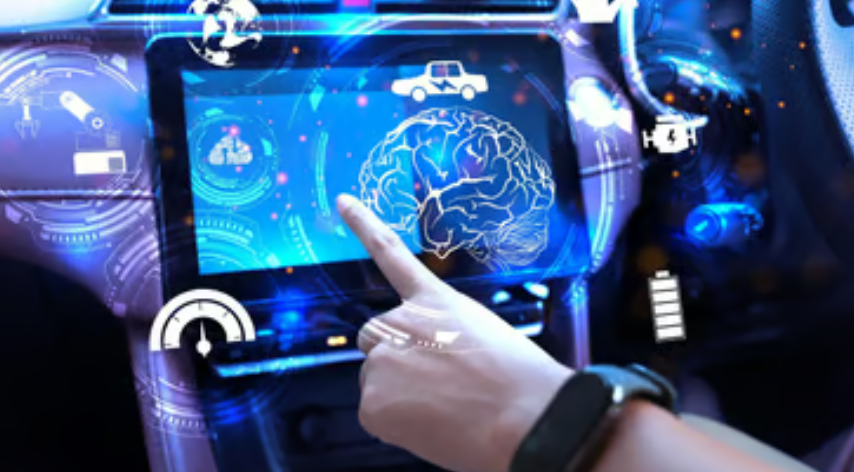The Role of AI in Transforming the Automotive Industry
Artificial Intelligence (AI) is at the forefront of a technological revolution that is reshaping the automotive industry. From the design and manufacturing processes to the operation and maintenance of vehicles, AI is driving unprecedented advancements in efficiency, safety, and customer experience. This article explores the transformative impact of AI across various facets of the automotive industry.
AI in Automotive Manufacturing
AI is revolutionizing the automotive manufacturing industry by optimizing production processes, ensuring superior quality, and enhancing supply chain management. By integrating AI into various aspects of production, manufacturers can achieve higher productivity, better quality, and reduced operational costs.
- Predictive Maintenance: AI monitors equipment health in real-time, predicting failures before they occur, thus reducing downtime and maintenance costs. For instance, BMW implemented an AI-driven predictive maintenance system that significantly reduced unplanned downtime and maintenance costs, improving equipment reliability and production efficiency .
- Quality Control and Inspection: AI-driven visual inspection systems detect defects with high accuracy, ensuring consistent product quality.
- Supply Chain Optimization: AI optimizes supply chain operations by predicting demand, managing inventory levels, and improving logistics efficiency.
- Production Planning and Scheduling: AI algorithms analyze production data to optimize planning and scheduling, reducing lead times and enhancing operational efficiency.
- Traceability and Compliance: AI enhances traceability throughout the manufacturing process, ensuring compliance with industry standards and regulations.
AI in Vehicle Operation and Maintenance
AI is also playing a vital role in the operation and maintenance of vehicles, leading to safer and more efficient driving experiences.
- Advanced Driver-Assistance Systems (ADAS): AI is used by ADAS to enhance driving safety. These systems monitor the vehicle’s surroundings, detect potential hazards, and provide alerts or even take control in critical situations .
- Predictive Maintenance Services: AI predicts maintenance needs for vehicles, providing proactive servicing and improving customer satisfaction.
- Autonomous Vehicles: AI is pushing the boundaries of what’s possible in autonomous vehicle technology. AI-powered vehicles can make real-time decisions, navigate tricky road conditions, and even communicate with other vehicles to improve traffic flow, leading to safer, more efficient transportation, and potentially reducing carbon emissions .
AI in Customer Experience and Sales
AI is transforming the customer experience in the automotive industry, from personalized marketing to streamlined sales processes.
- Customer Experience Personalization: AI analyzes customer data to offer personalized recommendations, enhancing the buying experience. For example, Tesla implemented AI-driven personalization tools that provide tailored recommendations and proactive communication to customers, leading to higher satisfaction and loyalty .
- Demand Forecasting and Supply Planning: AI predicts market demand accurately, optimizing inventory levels and supply chain operations.
- Dynamic Pricing: AI adjusts pricing in real-time based on market conditions, demand, and customer behavior.
- Virtual Showrooms and Test Drives: AI-driven virtual reality (VR) and augmented reality (AR) technologies provide immersive virtual showrooms and test drive experiences.
- Chatbots and Virtual Assistants: AI-powered chatbots and virtual assistants provide quick responses to customer inquiries and assist them through the car-buying process, creating a more streamlined and enjoyable experience.
Conclusion
The integration of AI in the automotive industry is not just an option; it is a strategic imperative for those aiming to stay competitive in a rapidly evolving market. As AI continues to advance, the automotive industry is positioned for a bright future, with AI-driven innovations leading to safer, more efficient, and more sustainable vehicles. However, capitalizing on AI opportunities requires investment in time and resources, as well as considerations for human safety, data privacy and security, compliance and regulatory requirements, and a responsible approach to AI .
